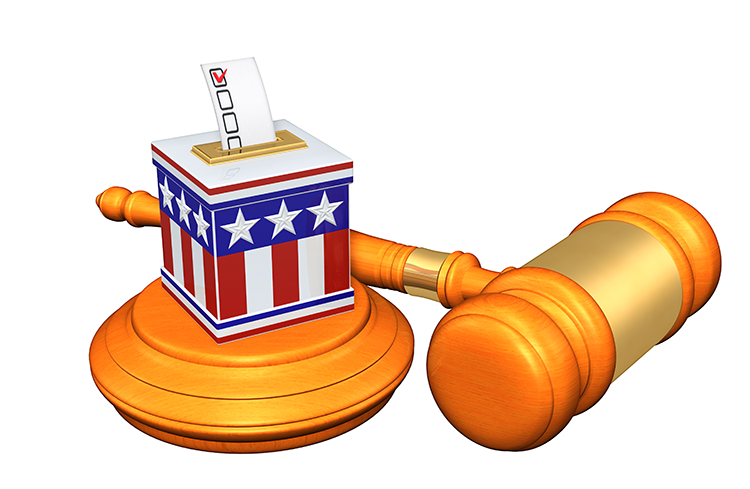Supreme Court allows eased voting requirements in Rhode Island and notes state support

Image from Shutterstock.com.
The U.S. Supreme Court on Thursday refused to interfere with a consent decree that allowed Rhode Island voters to use mail-in ballots without having to get two witnesses or a notary to verify their signature.
The Supreme Court offered an explanation for refusing to stay the consent decree, in contrast to the usual brief orders that it issues when acting on emergency requests, report the New York Times and SCOTUSblog.
The Washington Post also has coverage; an American Civil Liberties Union Aug. 13 press release is here.
The Supreme Court said the Rhode Island case is different than other cases in which a state defends voting requirements. Here, state election officials support the consent decree lifting the verification requirement, and no state official has expressed opposition. The court also noted that the requirement was not in effect during the last election, and many voters may think that the requirement is not in effect.
The Rhode Island Republican Party and the Republican National Committee had asked the Supreme Court to block the consent decree. The Supreme Court said that, in circumstances in which the state has supported the decree, the GOP groups “lack a cognizable interest in the state’s ability to ‘enforce its duly enacted’ laws.”
Justices Clarence Thomas, Samuel A. Alito Jr. and Neil M. Gorsuch would have granted the GOP’s stay request.
See also:
ABAJournal.com: “SCOTUS rejects request to allow all Texas voters to use mail-in ballots”



